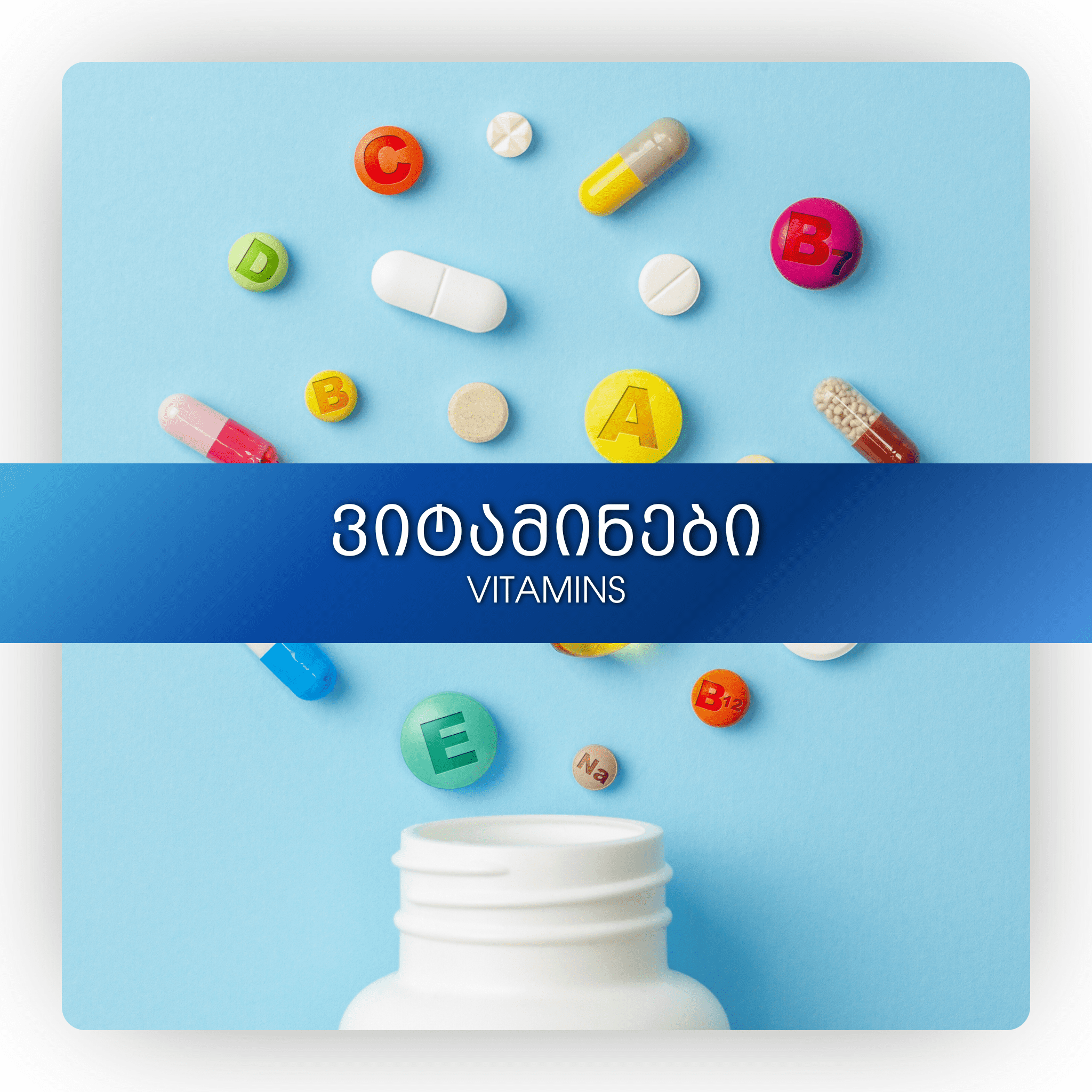Vitamins
Vitamins are complex organic molecules that are necessary in the process of metabolism in the body, for growth and development, as well as for the regulation of cellular function. There are vitamins of animal and plant origin. Except for a rare exception,the human body cannot synthesize vitamins, therefore it can only be obtained from food. Many countries produce foods enriched with vitamins, such as: bread, cereals, flour, milk, margarine, baby food, soy milk, orange juice, salt and others.
Vitamins are divided into two categories: fat-soluble vitamins (A, D, E, K) and water-soluble vitamins (C, B1, B2, B6, B12, folic acid, pantothenic acid, and biotin). The body does not store water-soluble vitamins for a long time, fat-soluble vitamins are well digested with fat and are stored for a long time in the liver and adipose tissue.
Vitamin A - plays an essential role in vision, growth and development, immune function and reproduction. Vitamin A deficiency causes many disorders. e.g. Dry conjunctivitis, night (chicken) blindness, defective bones and teeth formation. Animal food sources of vitamin A are: liver, fish oil, butter, eggs. And vegetable: carrot, broccoli, mango. It is also used in pharmacy.
Vitamin D regulates calcium and phosphorus homeostasis in the body. Its role in the development of the muscular system is especially important. Long-term vitamin D deficiency in children causes bone defects (rickets, osteoporosis) and hearing loss in the elderly.The food source of vitamin D is very scarce, but its synthesis is quite simple. Relatively rich sources are: fish oil, egg yolk, milk and milk products, soy drinks.
Vitamin E is a very powerful antioxidant that protects DNA, proteins and unsaturated fatty acids from oxidative damage by reducing free radicals. It also plays an important role in signal transduction in the cell. It can help prevent coronary heart disease. Studies have shown that oxidative modification of LDL cholesterol leads to blockage of coronary arteries, which can lead to heart attacks. It is vitamin E that reduces the risk of oxidation of LDL cholesterol. Cataract is a disease that develops from abnormal growth of the lens of the eye, causing blurred vision. Studies have shown cases of eye cataracts being cured as a result of vitamin E consumption.
Vitamin E deficiency may cause cystic fibrosis, Its deficiency also causes pancreatitis and cholecystitis ,ataxia.
Food sources of vitamin E are vegetable oil, nuts, peanuts, almonds, green leaves of vegetables, seeds.
Vitamin K is also called the coagulation vitamin. It is produced by bacteria in the gastrointestinal tract.
Function and Deficiency: Vitamin K controls the blood clotting process, it is necessary for the production of proteins in the liver that control the blood clotting process. Vitamin K is also involved in the process of bone formation.Food sources of vitamin K are avocados, fruits (blueberries, grapes, apples), green leafy vegetables.
